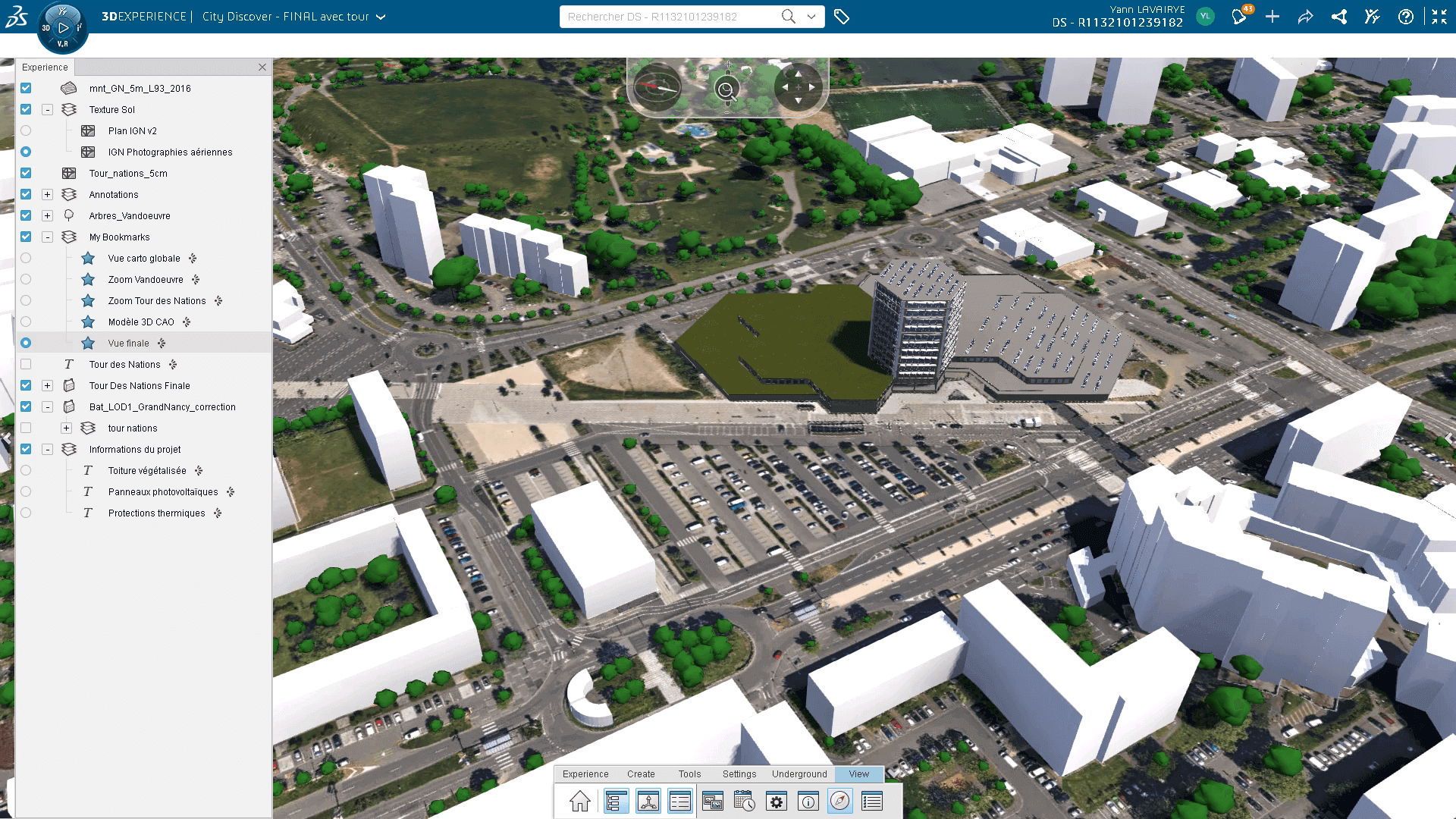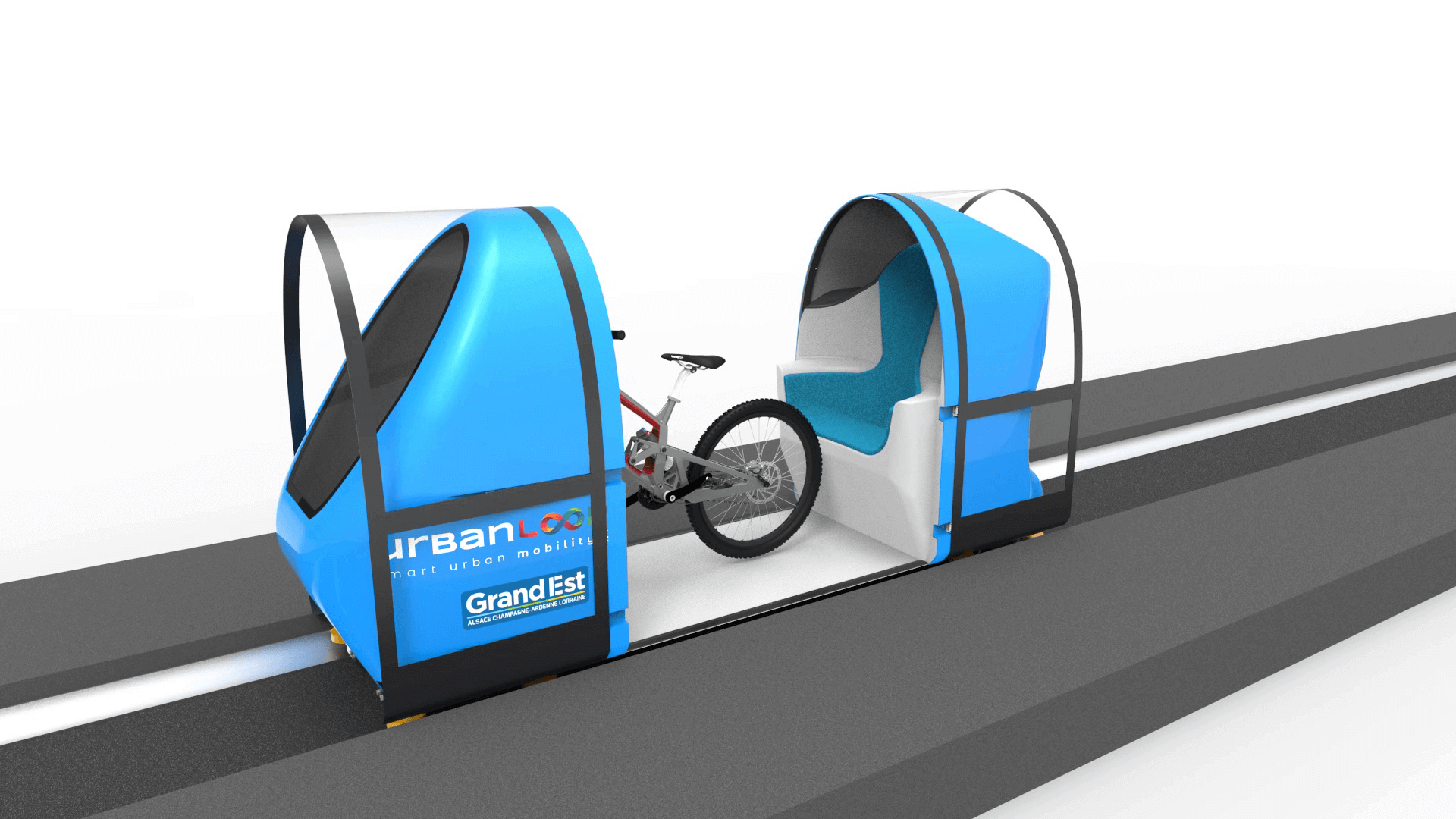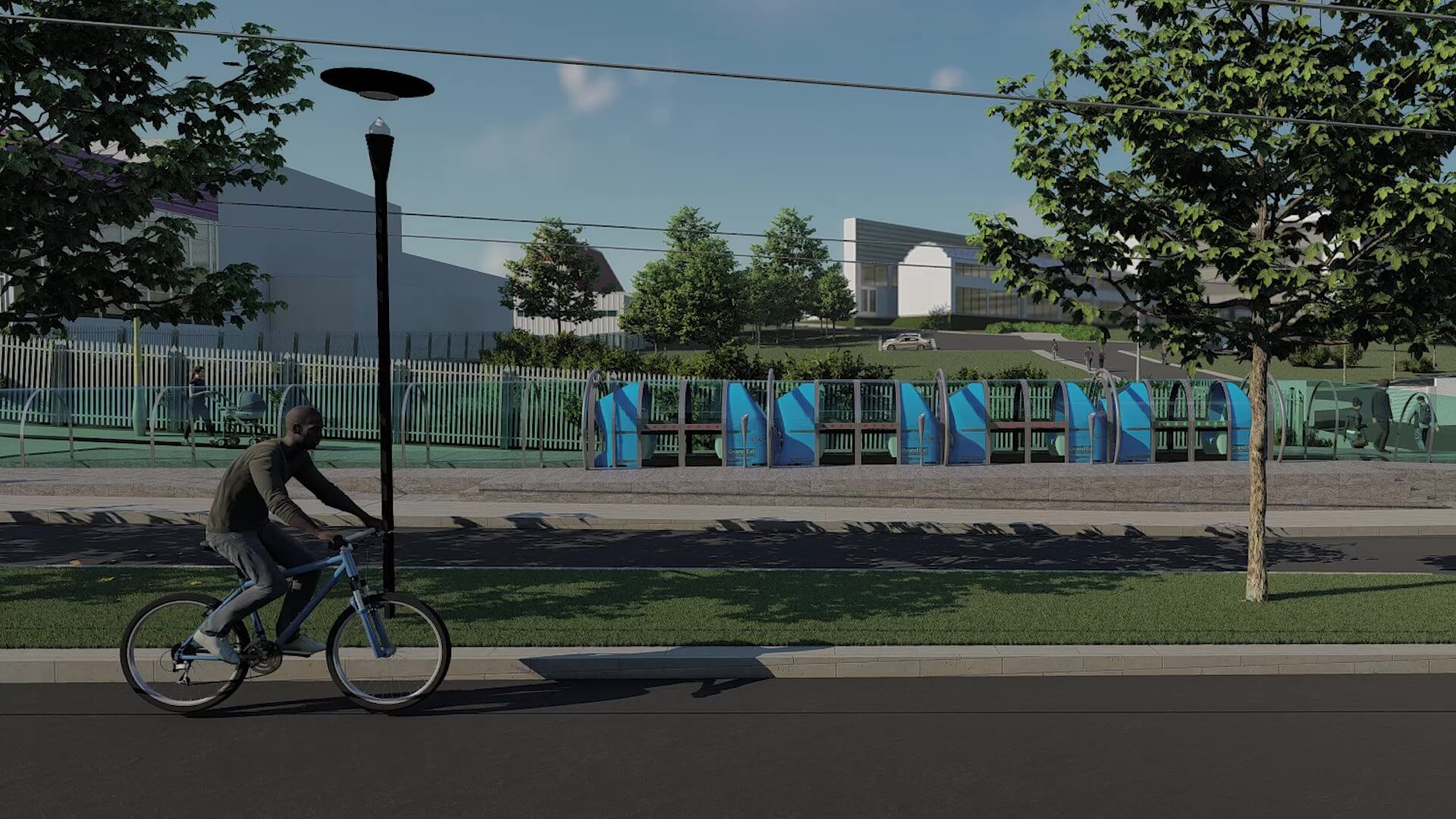Citizen Engagement: Act Local, Think Sustainable
How can a city lower its noise levels? How can it improve air quality?
As global temperatures continue to rise, how can it map cool spots and create new ones? How can it offer more sustainable public transportation, or help an iconic building use energy more efficiently?
A group of engineering students at Polytech Nancy is tackling these questions head-on. They are following a one-year prototype program to become “E-urban managers”.
The program is designed to train future engineers in the governance of urban planning projects, allowing them to hone cross-disciplinary skills that are increasingly in demand. Beyond helping them advance in their studies, the project also meets important personal goals.
We are young: the issue of the environment is very close to our hearts, and we want to do something about it.

Over the course of the year, Marie and 20 other students have worked in teams of three, focusing on one of the real-world urban challenges outlined above.
Students are mentored by tutors: professors at their university, but also a group of Dassault Systèmes professional engineers and experts brought on by La Fondation Dassault Systèmes. Some of the tutors are still working, and some are now retired. For them, joining the project is a way to pass on their experience to the next generation, bringing together technical expertise and purposeful action.
The project also involves local government experts. They advise students as they conduct in-depth research into their project’s urban issues. The next step is collecting or creating datasets to better understand their urban challenge. Students then build virtual twins of a city district in Nancy, and they add their projected solution to the digital universe. Virtual twins, which are complex simulations of the real thing, allow the students to model, analyze, and even test the solutions they are working on.
At the end of the year, the students present their projects to the elected officials of the Nancy Metropolis, and they plan on sharing them more broadly in the hopes of sparking citizen engagement.
If we could bring our project to the public, it would be a real victory. We would really be contributing to the citizen well-being, and that’s just awesome.
And from some of their virtual designs come real outcomes. Part of the work the students are doing contributes to the Urban Loop project. This is a sustainable means of transportation that will use capsules to transport passengers in Nancy. It is planned to be ready in time for the Paris 2024 Olympic Games.

Bridging the Gap Between Engineering and Urbanism
The Nancy Metropolis, located in the northeast of France, is home to over half a million people. Although some of the challenges it faces are unique, many are relevant in the broader European context.
Cities cover only 4% of Europe’s territory but they are home to three out of four Europeans. As such, cities are a laboratory for many of the most pressing sustainability innovations: transforming the way people inhabit them can have an outsized impact on the world.
At Polytech Nancy, engineering graduates do not typically work on urban planning and most leave to pursue a career elsewhere after they finish their studies. The students enrolled in the prototype program are building a different connection with the city: they are joining to understand local issues much better and by working towards concrete urban projects, they are helping to inform local decision-makers. That is what The Only Progress is Human campaign is all about: showing how humans – i.e. citizens, can drive change for a better future.
We’re really looking to dive into the whole aspect of the sustainable, resilient city and, as engineers, we bring a complementary perspective.

This is one of the reasons why using virtual twins is essential: 3D models allow all stakeholders to get a better grasp of the issues at hand, by seeing how they unfold in space.
From Citizen Engagement to Holistic Learning
For the students, the program is a time-consuming and transformative experience. Some of them join to hone hard skills that will be useful in their future studies and jobs, such as mastering the software that underpins their projects. Others are attracted by the chance to work with professional engineers and experts.
As they near the end of the academic year and the program, some of the lessons the students have distilled from their work seem to catch them by surprise.
“This project has really given me a lot of self-confidence. I feel a little more capable of managing other people.” said Marie.
Other lessons learned also help them grasp the professional setting, where engineering helps solve real-world urban issues.
Unlike in the classroom context, here we really get to choose for ourselves what to do. We get a glimpse into the work of an engineer: decision-making, collaborating with multiple teams, and so on.
Seeds for Future Growth
The “E-urban manager” program first ran its prototype in 2021. In 2022, the students have been working to make the program a permanent offering at Polytech Nancy and beyond. As they advance in their projects, they are creating a library of video tutorials, in French and in English, which will help future students work more efficiently with the complex software needed to create virtual twins. Further down the road, these tutorials will help other students in France and abroad.
Thanks to the success of E-Urban manager, Polytech and La Fondation Dassault Systèmes have decided to expand the same solutions-oriented teamwork to other domains. Health is the first one: an “E-health manager” prototype program is running for the first time this year.
Project supervisors
Program Manager
Partnership Manager
What does citizen engagement mean?
Citizen engagement is defined by the interaction between citizen and their governments. Citizen engagement in the decision making process can occur at several points:
- Involving citizen for implementation of government policy and delivery of public services
- Organizing events in local areas
- Helping the State improve public service delivery
What are the objectives of citizen engagement?
The 5 most common objectives of engaging citizens in urban development are:
- Easier implementation of decisions
- Strengthened local governments
- Improved community support
- Better information exchanges
- Raised awareness
However, the objectives can be as varied as the projects that citizens bring forward. As urbanization continues to intensify, it is more vital than ever to leverage the collective intelligence of citizens, businesses, and governments to make cities more people-friendly and sustainable. At Dassault Systèmes, this engagement is not only embodied by La Fondation’s own work, but also by the core work that pushes for sustainability across the board.


